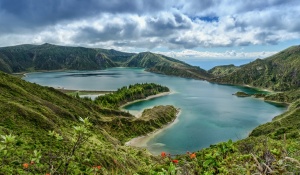Objectives
This course introduces the field of island biogeography, a discipline that has long influenced other research areas such as macroecology, community ecology, evolution and conservation biology. This course covers the main aspects of island biogeography, and on completion of the course the students shall have acquired knowledge and understanding on:
1) Ecological/evolutionary theories developed from studies on islands, and its applications in other research areas.
2) Processes that occur during and after island colonization, that shape island communities.
3) Island evolutionary processes.
4) Applications of island biogeography to conservation biology
This course can have a recognition of 5 ECTs for FCUL PhD students enrolling in it as part of their first doctoral year. For students requiring a recognition of 6 ECTs 6 more hours of tutorial time will be included (amounting to a total of 36 hours of contact with the teachers), and the students will need to deliver an additional report (two reports total).
Minimal formation of students: “Licenciatura” (bachelor) in Biology, Geography or related areas.
Directed to: PhD or MSc students in Evolution, Ecology, Geography or related areas, and postdocs and other professionals working in related topics
General Plan
1. Introduction to island biogeography – historical context, types of islands, characteristics of island biodiversity (Ana MC Santos; Day 1 - 4 hours).
2. Ecological processes I – equilibrium theory of island biogeography, species-area
relationship (Ana MC Santos; Day 1 – 3.5 hours).
3. Ecological processes I – species-area relationship and the General Dynamic Model - Practical exercises (in R) (Ana MC Santos; Day 2 – 4 hours).
4. Ecological processes II – metapopulation ecology, theoretical models in island
biogeography (Joaquin Hortal; Day 2 – 3.5 hours).
5. Ecological processes III – Neutral Theory of Biodiversity (Luis Borda de Água; Day 2 – 3.5 hours).
6. Island Communities – colonization, assemblage characteristics, assembly processes,
succession (Ana MC Santos; Day 3 – 4 hours).
7. Evolution on islands – speciation, evolutionary models, adaptive radiation,
phylogeography (Ana MC Santos & Sofia Gabriel; Day 4 – 4 hours).
8. Island biogeography and Conservation biology – theory of island biogeography and
conservation, reserve design, human impacts (Ana M C Santos & Paulo AV Borges; Day 4 – 3.5 hours).
Funding
Students fees.
Partners
n.a.
Fee
Free for 1st year PhD students in the Doctoral program in Biology (FCUL), Biodiversity, Genetics and Evolution (BIODIV UL; UP) and Biology and Ecology of Global Changes (BEAG UL, UA) when the course counts credits for their formation, in which case the delivery of a final report done after the course is mandatory; 20 € for PhD students from institutions of the PEERS network (cE3c, CFE); 100 € for FCUL Master students and unemployed; 150 € for BTI, BI and other PhD students; 200 € for Professional and postdocs.
When the maximum number of students is reached 10 vacancies will be available for non-paying 1st year PhD students mentioned above, being, by order of preference: 1) cE3c students; 2) BIODIV students (not from cE3c); 3) FCUL students (not from cE3c); 4) BEAG students (not from FCUL).
Candidates should send a short CV and motivation letter explaining why they are interested in the course, also including a brief description of their research projects (if applicable). Send all information and requests to Ana M. C. Santos (ana.margarida.c.santos@googlemail.com)
ana.margarida.c.santos@gmail.com

